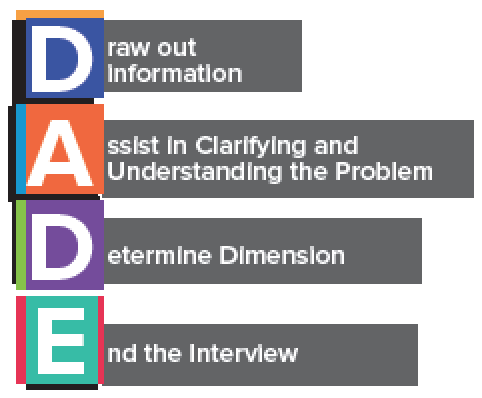Step 6: Provide Hope We are now ready to complete our series of discussions on IRBC’s counseling philosophy and methodology. While focusing our attention on the latter, last time we looked at counseling steps 4 and 5. In this article we look at the final two steps of Reformed biblical counseling. In the context of […]
Step 4: Direct or Confront the Counselee This step is an essential part of the practice of biblical counseling and is one which sets it apart from various forms of Rogerian psychotherapy1 which are highly utilized by both secular and Christian counselors. While Rogerian-styled counselors utilize a non-directive approach, biblical counselors believe that directives are […]
In the last article within the context of a discussion about IRBC’s third step of counseling (identifying and prioritizing problems), we touched upon the importance of sharing the gospel with those whom God brings us that are lost. Although ordained ministers have a particular responsibility to proclaim the gospel, every member of the body of […]
Step 3: Identify and Prioritize Problems Identifying Problems Aside from helping counselees frame their problems in light of God’s sovereignty, one of the primary objectives of biblical counseling is to bring the Word of God to bear on the problems the counselee is facing in a compassionate manner. If this objective is to be fulfilled, […]
We began our discussion in the last article by emphasizing the importance of this step. Collecting sufficient data is essential for gaining an accurate understanding of the problem the counselee is experiencing. If we don’t have an accurate understanding of the problem, a wrong prescription will be made. Last time we began […]
Step 2: Collect Data An important part of the first step of counseling involved providing crucial information to the counselee; this was biblically-based information that will help him or her regain perspective on the sovereignty of God. The second step involves getting crucial information from the counselee; information that will help the counselor gain an […]
Preliminary Considerations Counselors should view the process of counseling as one which is both linear and variegated. Having discussed IRBC’s philosophy of counseling, we are now ready to begin discussing the methodology of biblical counseling. The first thing we want to note about IRBC’s methodology, and that of the broader field of biblical counseling, is […]
Last time we began looking at the Primary or Internal Dominant Domains™ of IRBC’s philosophical model of counseling. We considered the first two, which are the Spiritual and Mental Domains. In this article we will be introduced to the final three: the Emotional, Social, and Bodily Domains.™ The Emotional Domain™ When evaluating counselees for problems […]
Now that we have touched upon some of the key foundational principles underlying IRBC’s philosophical model of counseling, we are ready to take a closer look at its superstructure: The 7 Dominant Domains of Origin for Human Problems. Earlier we looked at the Environmental and Production Domains which fall into the category of the Secondary Dominant Domains. Now we will look at the Primary Dominant Domains […]
In recent articles we have discussed some of the foundational principles underlying IRBC’s philosophical model of counseling. Last time we focused our attention on the fact that man was created to work. In Genesis 1:28 (New International Version), God commissions man to “be fruitful and increase in number; fill the earth and subdue it. Rule […]










